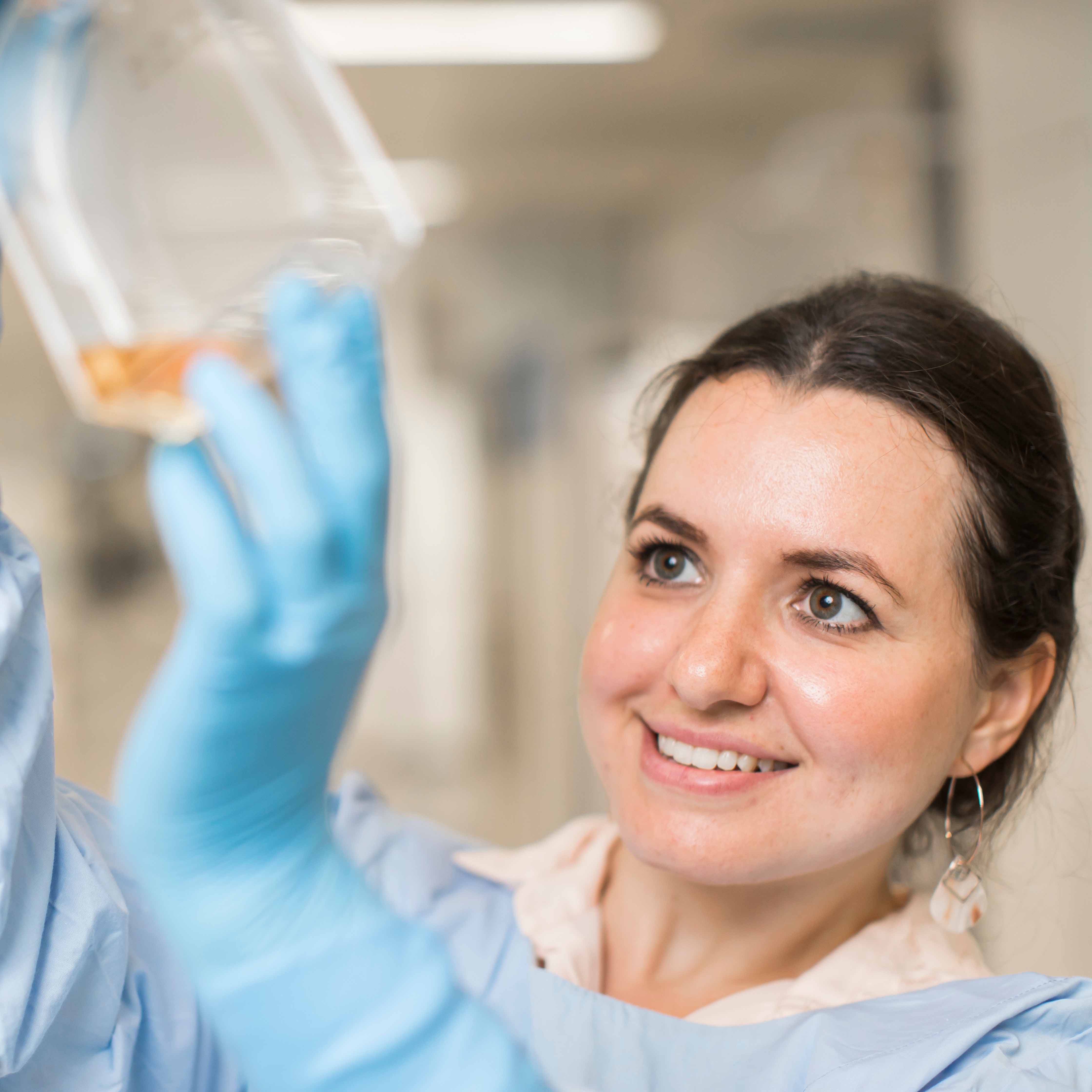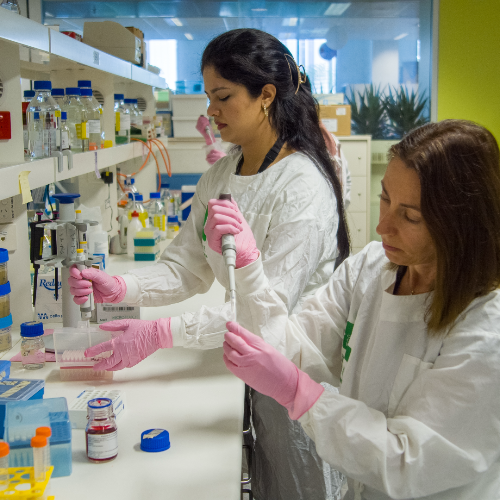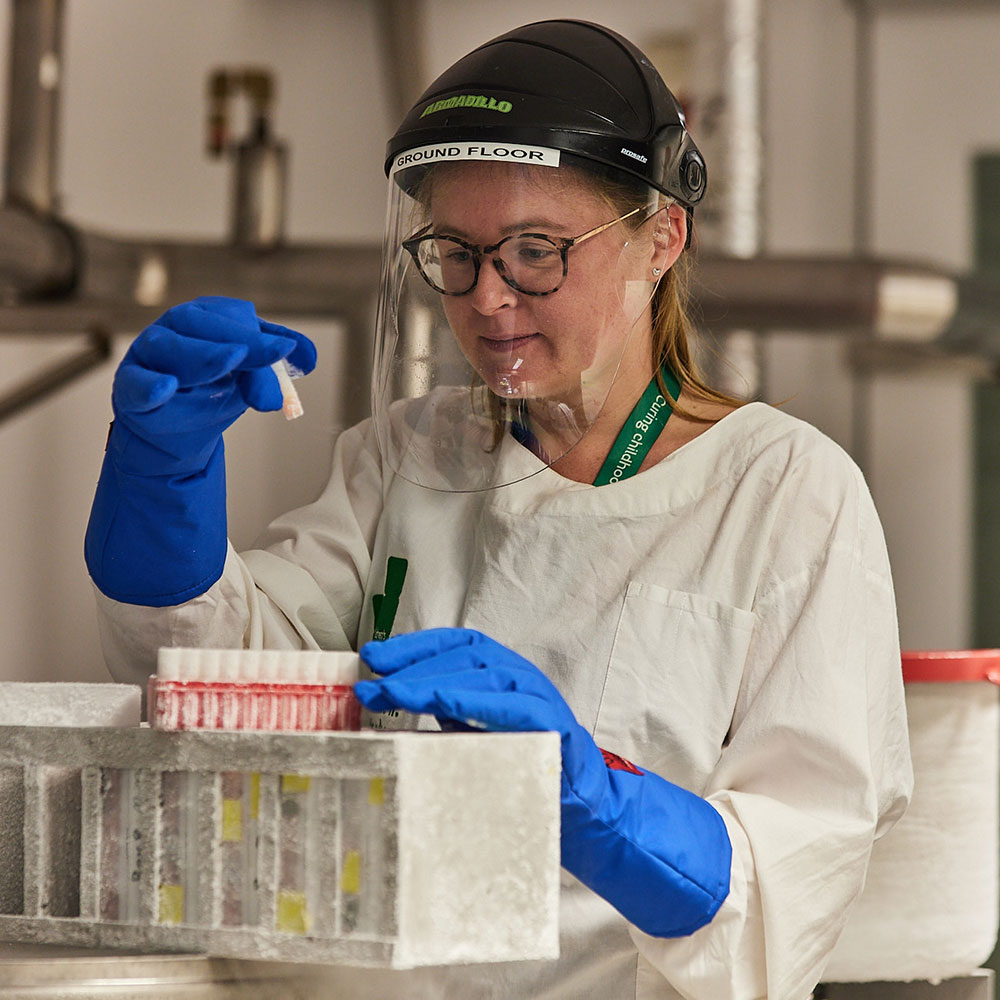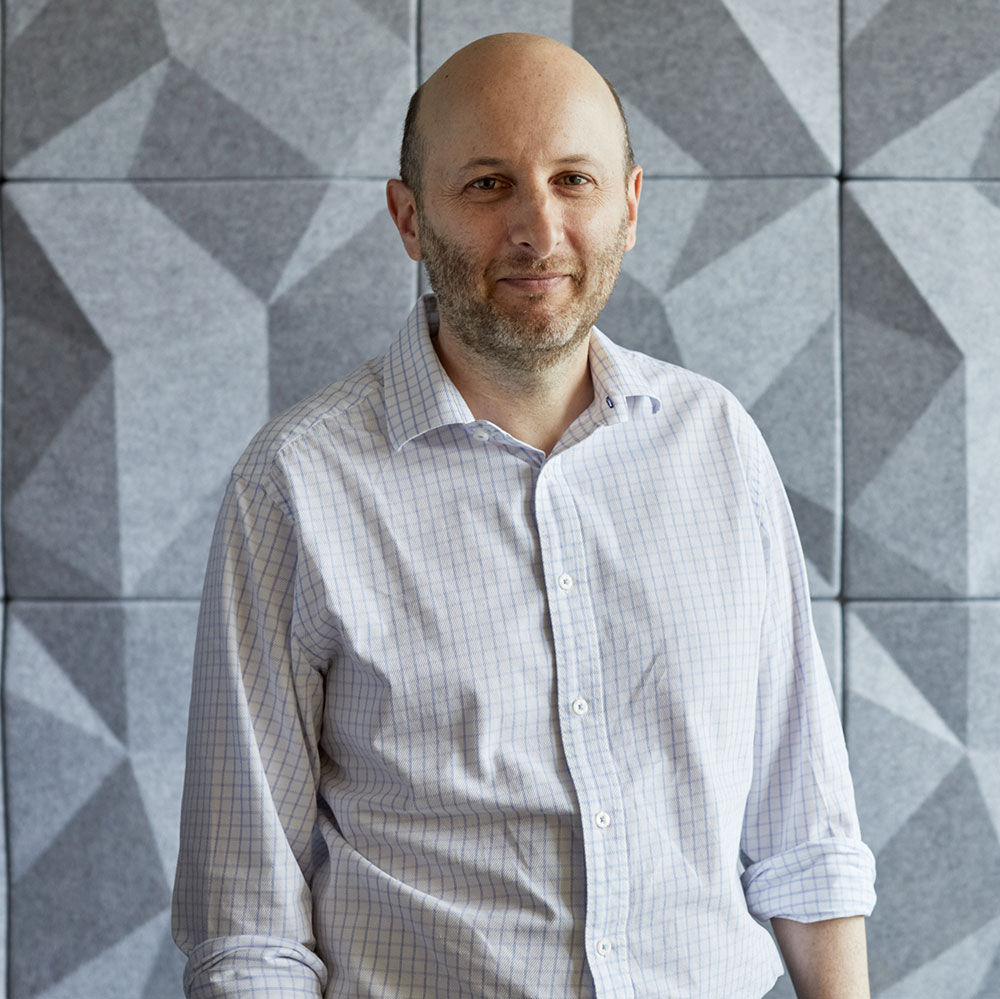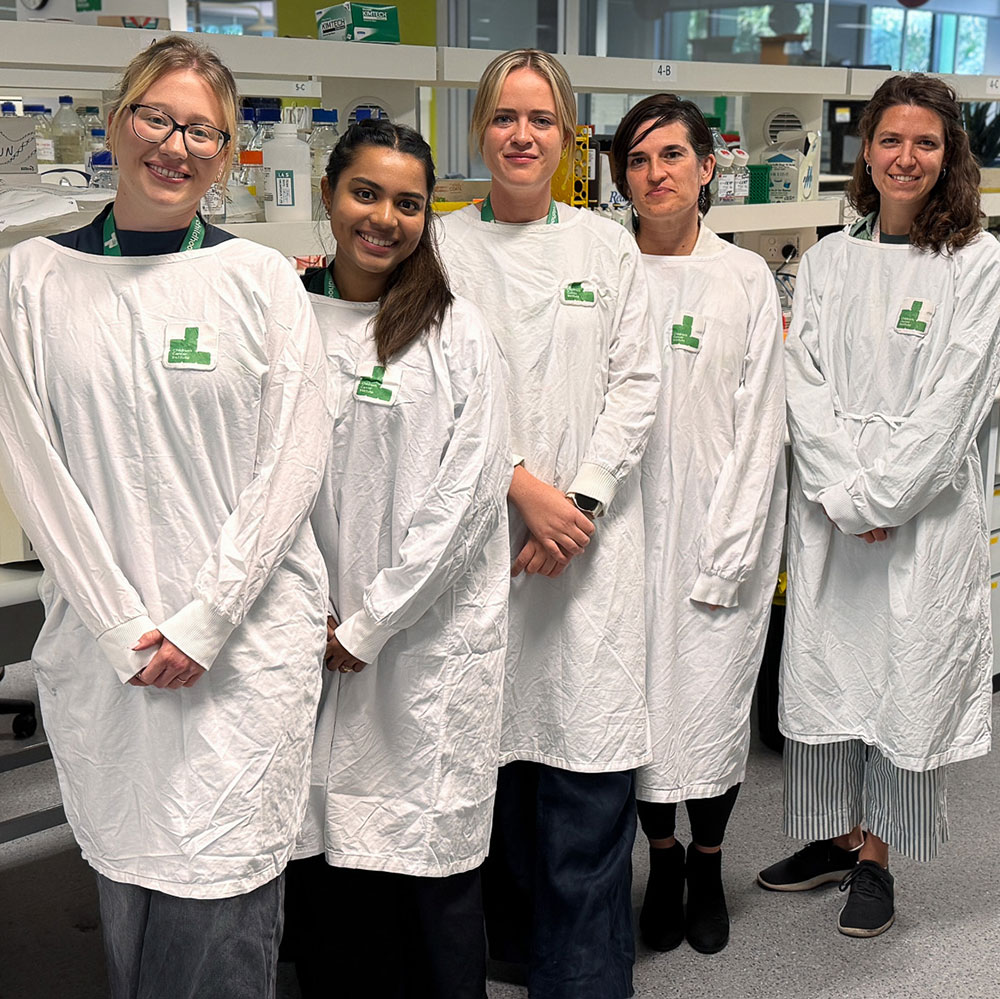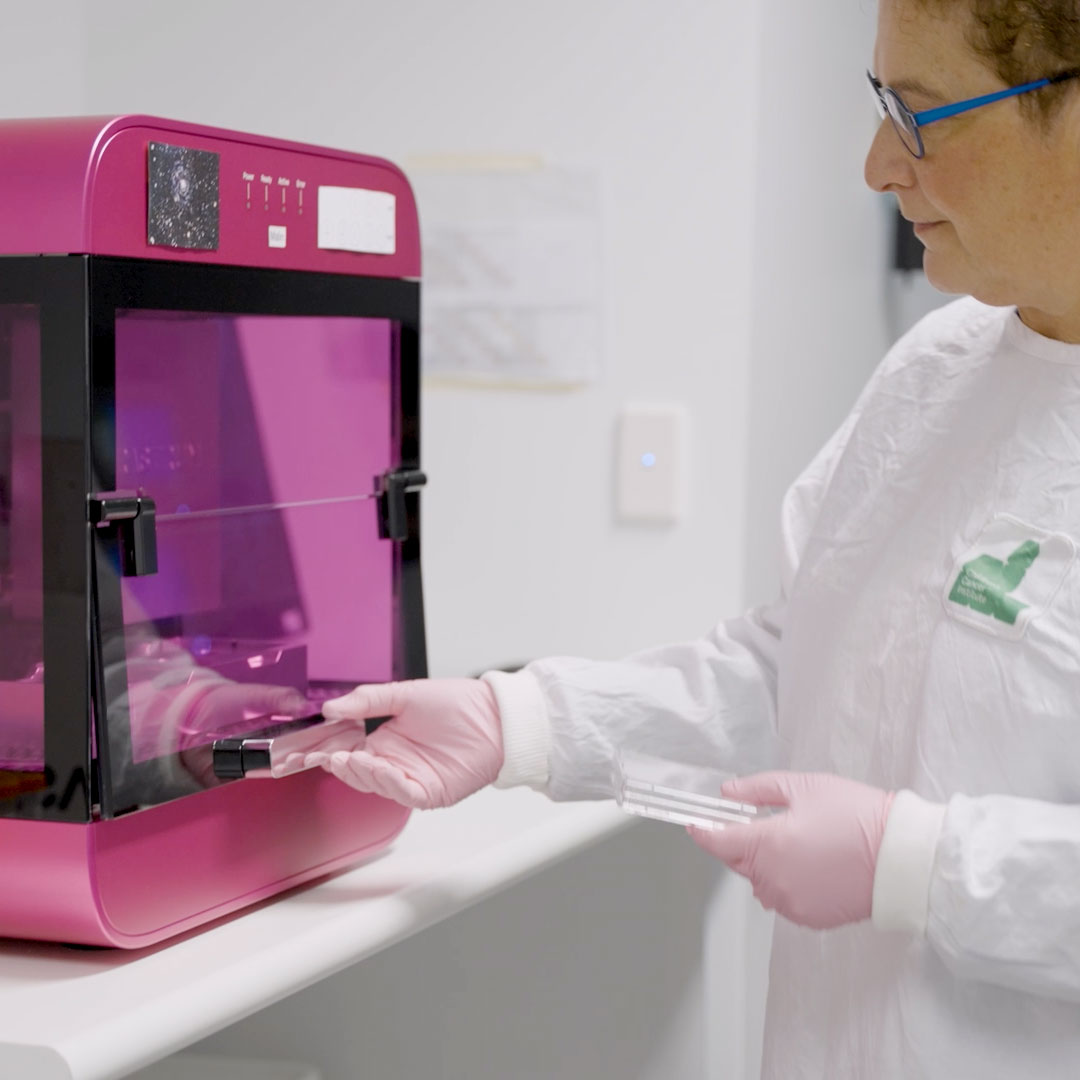The Zero Childhood Cancer Program (ZERO), Australia’s world-leading precision medicine program for children with cancer, will this month begin a progressive expansion to become available to all Australians aged 0 to 18 years with cancer, by the end of the year.
Since 2017, ZERO − led in partnership by Children's Cancer Institute and the Kids Cancer Centre at Sydney Children's Hospital, Randwick − has offered precision medicine to Australian children with the highest-risk cancers, those who face less than 30 per cent chance of survival.
Now, thanks to funding from the Australian Government and Minderoo Foundation, ZERO is being expanded to be available to children diagnosed with any type of cancer, irrespective of their cancer risk. The expansion will be done in stages, starting with all children diagnosed with brain cancer, then rolling out to all other types of childhood cancers as the year progresses.
A true team effort, ZERO includes all nine of Australia’s children’s hospitals as well as 22 national and international research partners, and is based on the premise that every child’s cancer is unique. Sophisticated genomic analysis is performed for each child enrolled on the Program, allowing scientists to look for genetic alterations that may be driving the cancer’s growth, then search for drugs capable of targeting those alterations. This information is returned to the clinicians treating the child, to help inform their decision-making.
“The expansion of ZERO to be available to all Australian children with cancer is something we’ve all been working towards for a long time, so it’s extremely exciting to now see it unfolding,” said Professor Michelle Haber AM, Executive Director of Children’s Cancer Institute.
“Analysing each child’s cancer at a genomic level is providing unprecedented and extremely valuable insights into childhood cancer. For example, finding out which genetic changes drive these cancers will allow us to develop new targeted therapies matched to these changes. In the expanded ZERO, genomic analysis will occur from the time of diagnosis for every child enrolled, allowing us to track the way each child’s cancer changes in response to treatment. Analysing the cancer journey of up to 1000 young Australians each year in this way will add volumes to our understanding of childhood cancer, for the benefit of all children diagnosed with cancer in the future.”
“The more children who participate in ZERO, the more we learn. In this way, children being treated for cancer today are actually helping the children of tomorrow.” As explained by Professor David Ziegler, Chair of Clinical Trials for ZERO, Paediatric Oncologist at Kids Cancer Centre, Sydney Children’s Hospital, and Group Leader at Children's Cancer Institute, the precision medicine approach taken by ZERO represents a fundamental change in the way cancer is treated.
“Analysing a child’s cancer at a genomic level can lead to a whole new way of understanding that child’s cancer. This can lead to a more accurate diagnosis, prognosis and risk stratification, and in some cases, a refined treatment approach.”
“In ZERO’s first national precision medicine trial, we saw some very promising results in children with the highest risk cancers. Some children are alive today who would have died had they not been enrolled on ZERO, while some others had precious months added to their life by changing their treatments. ZERO’s expansion will now allow us to investigate the potential of precision medicine to help all young patients with cancer, regardless of their risk profile.”
Professor David Eisenstat, Head of Department, Children's Cancer Centre, The Royal Children's Hospital, Melbourne, commented “ZERO is a truly national program, and all Australian children’s hospitals are playing a critical part. With ZERO now expanding, every Australian child diagnosed with cancer, no matter where they live, will have the opportunity to benefit from precision medicine.”
“Here in Melbourne, we have several children who have benefited from targeted therapies identified through ZERO, including Kristian Kozul. Kristian has an aggressive brain cancer and without the targeted therapy ZERO identified, it is unlikely he would have survived. To see him doing so well today is beyond all our expectations.”
Kristian Kozul was just 15 months old when he began having seizures. No one could determine what was wrong with Kristian until a biopsy at the Royal Children’s Hospital led to the diagnosis of cancer − a rare brain tumour known as anaplastic astrocytoma. Kristian began intensive treatment. However, after five months of chemotherapy, the aggressive tumour had not shrunk but instead had grown bigger.
Kristian was given less than a year to live − a devastating prognosis for a young child. With Kristian being too young for radiation, and having no other options available to them, his parents agreed to him doing a genetic sequencing test as part of the Zero Childhood Cancer Program.
The test was successful in identifying a rare genetic mutation and in November 2017, Kristian, then two years old, was enrolled in a clinical trial open at Sydney Children’s Hospital to test a drug targeting that same mutation. After just weeks of treatment, an MRI scan showed that his tumour had stopped growing.
Today, more than five years later, Kristian is not only alive but is thriving. He has started school and is enjoying life to the full.
“Kristian continues to grow and develop each day. He has come such a long way and continues to amaze us. We know that if it wasn’t for ZERO, our little boy wouldn’t be with us today, and we couldn’t be more grateful,” said Kristian’s mum Maria.
Minderoo Foundation has supported ZERO since 2017, and has partnered with the Australian Government, through the Department of Health’s Medical Research Future Fund, to jointly provide $67 million of funding to expand the Program to all young Australians with cancer.
“Minderoo Foundation believes ZERO gives children like Kristian and young adults with cancer the greatest chance of not only surviving their disease but also thriving in later life,” said Aileen Boyd-Squires, Head of Personalised Cancer Care for the Foundation’s Collaborate Against Cancer Initiative."
"Collaboration is critical to a precision medicine approach for children with cancer and we are so pleased to support each of the hospitals in the ZERO network with additional staff resourcing, and to help build the digital infrastructure for this complex Program. We’re proud to support the Program’s expansion and to partner with the ZERO team.”
The Zero Childhood Cancer clinical trial is sponsored by the Australian and New Zealand Children’s Haematology and Oncology Group (ANZCHOG).
MEDIA ENQUIRIES:
Tania Ewing
0408 378 422
taniaewing@taniaewing.com
ABOUT ZERO CHILDHOOD CANCER
The Zero Childhood Cancer Program (ZERO) is a world-leading precision medicine program for children with cancer. Led by Children’s Cancer Institute and the Kids Cancer Centre at Sydney Children’s Hospital, Randwick, ZERO includes all nine of Australia’s children’s hospitals together with 22 national and international research partners. Providing in-depth genomic analysis for each child and their cancer, ZERO aims to improve survival, reduce side effects, and advance science’s understanding of childhood cancer for the benefit of all. ZERO is at the forefront of scientific and technological discovery, driving advances as quickly as possible from the research lab into the clinic. These advances are not only benefiting some children with cancer today, but are leading to a whole new understanding of childhood cancer that stands to revolutionise the model of care for all children with cancer in the future.
More at zerochildhoodcancer.org.au
View ZERO funding partners at https://www.zerochildhoodcancer.org.au/about/fundingpartners
ABOUT CHILDREN’S CANCER INSTITUTE
Originally founded by two fathers of children with cancer in 1976, Children’s Cancer Institute is the only independent medical research institute in Australia wholly dedicated to research into the causes, prevention and cure of childhood cancer. More than 40 years on, our vision remains to save the lives of all children with cancer and improve their long-term health, through research. The Institute has grown to now employ over 350 researchers, operational staff and students, and has established a national and international reputation for scientific excellence. Our focus is on translational research, and we have an integrated team of laboratory researchers and clinician scientists who work together in partnership to discover new treatments which can be progressed from the lab bench to the beds of children on wards in hospitals as quickly as possible. By developing safer and more effective drugs and drug combinations, we aim to minimise side effects, giving children with cancer the best chance of cure with the highest possible quality of life.
More at ccia.org.au
ABOUT KIDS CANCER CENTRE
The Kids Cancer Centre (KCC) at Sydney Children’s Hospital, Randwick has been treating children with cancer and blood diseases in NSW, Australia and the Asia-Pacific region for nearly 50 years. Almost two thirds of children treated for cancer or leukaemia at the Centre are enrolled on clinical trials, in a unique model where research and clinical care are one, ensuring the best possible care for children and their families. During that time the survival rates for children with cancer have gone from 10 per cent to nearly 80 per cent. Clinical and research staff from the Centre have made major international and national contributions to the expansion of knowledge in the area: from important discoveries around bone marrow transplantation, chemotherapy for relapsed solid tumours and leukaemia, to the invention of novel anti-cancer drug combinations and minimal residual disease testing in acute lymphoblastic leukaemia. Centre staff have been leaders in devising new methods of outreach and home nursing, and in developing modern approaches to the bereaved family. These achievements have been founded on academic excellence and clinical expertise. In the past five years alone, the Centre’s staff have published over 200 papers in peerreviewed medical and scientific journals and been awarded more than $60 million in competitive grant funding. The past 20 years has also seen a total of eight clinical staff receive the Order of Australia honours for their work.
More at schn.health.nsw.gov.au
ABOUT MINDEROO FOUNDATION
Established by Andrew and Nicola Forrest in 2001, Minderoo Foundation is a modern philanthropic organisation seeking to break down barriers, innovate and drive positive, lasting change. Having invested more than $2.1 billion in the past two decades, Minderoo Foundation is proudly Australian, with key initiatives spanning from collaborating against cancer to ending plastic waste and modern slavery. More at minderoo.org. ABOUT ANZCHOG ANZCHOG is a non-profit organisation committed to ensuring Australian and New Zealand children receive world-class cancer care. We are the peak professional body for paediatric oncologists and health professionals who care for children with cancer, spearheading national initiatives to enhance clinical care through communication, research, networking and education. We are also the national cooperative clinical trials group for childhood cancer, actively working with trial consortia around the globe to ensure Australian and New Zealand children have the opportunity to access the latest promising cancer treatments.
More at minderoo.org
ABOUT ANZCHOG
ANZCHOG is a non-profit organisation committed to ensuring Australian and New Zealand children receive world-class cancer care. We are the peak professional body for paediatric oncologists and health professionals who care for children with cancer, spearheading national initiatives to enhance clinical care through communication, research, networking and education. We are also the national cooperative clinical trials group for childhood cancer, actively working with trial consortia around the globe to ensure Australian and New Zealand children have the opportunity to access the latest promising cancer treatments.


